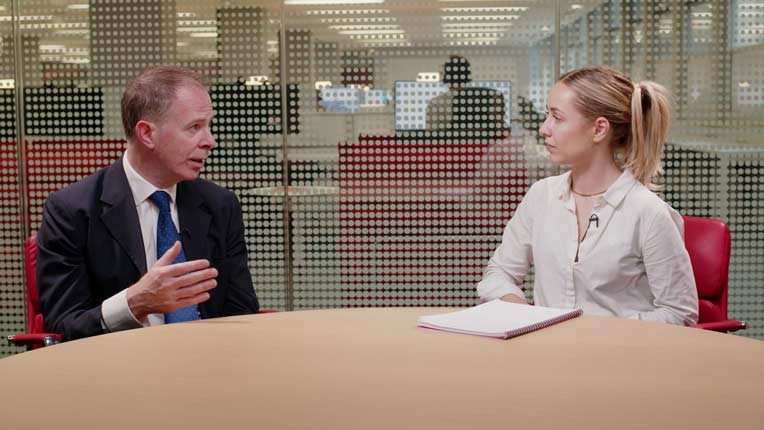Two of the UK’s largest companies – Tesco (TSCO) and Unilever (ULVR) – are locked in a bitter dispute over the pricing of premium brands, such as Marmite, Hellmann’s Mayonnaise and Ben & Jerry’s ice-cream.
Unilever wants to push through a 10% price increase in these items, following the collapse of sterling after the Brexit vote. Tesco is refusing to pay the higher price, and has pulled some brands from its online store. Products remain on shelves in stores for now, but the supermarket said supplies are running low of certain items.
This so-called “Marmite Spat” is unlikely to be an isolated incident. Kathleen Brooks, research director at City Index said: “This battle is just the latest fallout from Brexit. With the pound dipping again [against both the dollar and euro] price wars are likely to heat up.”
She said supermarkets will try and resist price increases as most of them are trying to cut prices to attract consumer and maintain market share against ‘low-cost’ rivals – such as Aldi and Lidl.
A few days ago the British Retail Consortium warned that Brexit could lead to higher prices on the high street.
Weaker Sterling Could Hit Retailers’ Profits
Laith Khalaf a senior analyst at Hargreaves Lansdown said: “This pricing spat is likely to be the thin end of the wedge when it comes to relationships between UK retailers and their suppliers, in light of the pressures now applied by weaker sterling.
“This kind of friction is an inevitable results of the unstoppable force of higher import costs hitting the immovable object of UK retail pricing.”
For consumers this is likely to spell higher prices in the long run, unless retailers find some way to defray higher import costs. For investors it highlights the importance of looking for companies that have ‘pricing power’ and are unlikely to see their margins eroded in such price disputes.
Unilever ‘Has Upper Hand’ In Pricing Dispute
Russ Mould, investment director at AJ Bell says: “Unilever clearly feels it can push through the price increases it is demanding, due to the power of its brands such as Hellmann’s, Magnum, Dove, Knorr and Lipton’s. Tesco clearly feels it cannot push through the price increases because the supermarket is locked in brutal battle for market share.
“While the two may reach some middle ground, the share price performance of both stocks over the last five years show which company ultimately has the stronger pricing power, and therefore better earnings and dividend-paying potential.”
According to Morningstar figures Unilever’s share price has risen by 15.48% over the past five years (and 18.98% over the past three years.) In contrast Tesco fortunes have moved in the opposite direction. The supermarket share price has fallen 9.5% over five years and a 15.95% over three years.
Mould adds: “Pricing power is important because if a firm can charge what it wants it should generate high margins, consistent earnings and robust cash flow which it can then turn into the reliable and growing dividends which provide such a large percentage of long-term total shareholder returns.”
In contrast firms without pricing power – such as producers of commodities like paper, pulp or steel – tend to churn out more volatile earnings and more volatile dividends.
Philip Gorham, senior equity analyst at Morningstar: “The price skirmish with Tesco will shine a light on what we believe to be the deterioration of pricing power in some consumer products categories.” He said retail customer have become more ‘value-conscious’ in recent years – due to limited wage increase and greater transparency of prices.
He added: “We expect the mutually beneficial relationship between Unilever and its customers – the source of their wide ‘economic moat’ to ensure that a resolution is found sooner rather than later.”
He said given the breadth of Unilever’s product range, across many different categories it would be difficult for competitors, particularly new entrants to steal material shelf space.
Morningstar is reiterating its ‘fair value’ estimate for the Amsterdam traded shares but raising the valuation of the London-traded shares, to reflect the significant weakening of sterling against the euro.
The question for investors is how to spot a company with pricing power, especially in a world where the internet creates so much price transparency.
How To Spot a Company with ‘Pricing Power’
Mould identified five year traits to look for which gives firms “an above-average change” of having pricing power.
Technological edge: Firms like Apple (AAPL) make a great case in point he says – particularly as its main rival Samsung (SMSN) has made such a hash of its latest product release.
Strong brands: This encourages consumer loyalty. Unilever is a good example of a company whose success is based on a number of strong consumer brands, as are the big tobacco companies.
A feel-good factor: Luxury goods firms such as Burberry (BRBY) or LVMH (LVMH) or Richemont (CFR) are examples of this. They sell high-end designer clothes, perfumes, pens, which make people feel good about themselves and – better still – do it at a price point which only the plutocratic few can afford.
An installed case: implant costly kit at their clients’ premises can exploit an installed base to secure recurring revenues through product upgrades, maintenance and training. Halma (HLMA) is a good example here.
Market share: High market share can confer pricing power, especially in a consolidated industry. Sky (SKY) is facing more competition than ever for content but it still has a hugely powerful position and an installed base of customers to tap for more money as it nudges up prices or offers new value-added services such as Sky Q.











.jpg)



















